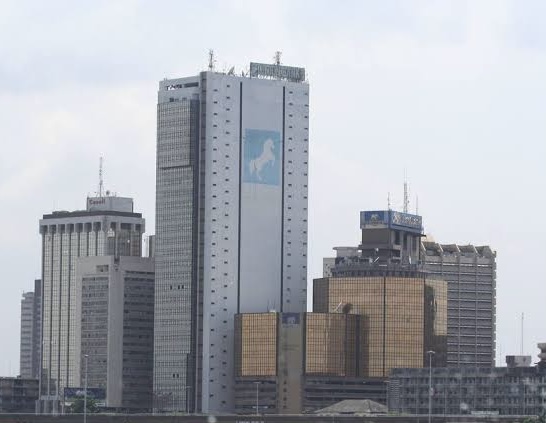
Guinness Nigeria Plc, now under the Tolaram Group following its acquisition from Diageo in September 2024, remains one of Nigeria’s most iconic beverage manufacturers. With a legacy spanning over seventy years, it stands as a symbol of industrial resilience, innovation, and employment impact in Nigeria’s fast-moving consumer goods (FMCG) sector.¹ Yet, a closer look at its human resource (HR) practices—drawing from employee reviews, public corporate materials, and academic research—reveals both commendable strengths and areas ripe for strategic improvement.
Organisational Strengths: Culture, Ethics, and Structure
- Organisational Culture and Ethical Environment
Guinness Nigeria enjoys a reputation for strong values, disciplined governance, and an ethical workplace culture.² Employee reviews on Indeed Nigeria and Glassdoor cite respectful treatment of staff, an inclusive atmosphere, and visible adherence to the company’s Code of Business Conduct.³
One Business Development Manager remarked:
“GN Plc is about the values. The culture is superb and every employee must be treated with respect.”⁴
Another employee noted:
“The work ethics in Guinness Nigeria is great… governance structure and Code of Business Conduct are well deployed.”⁴
These perceptions align with Guinness Nigeria’s public statements on business integrity, anti-discrimination, and workplace safety.³
- Structured Recruitment and Appraisal Systems
Peer-reviewed studies on Guinness Nigeria have found statistically significant positive relationships between recruitment/selection practices, performance appraisals, and organisational performance.⁵
The company maintains minimum qualification thresholds, hires HR professionals with verifiable competencies, and applies formal performance review processes.⁵ Such structures help ensure that staff performance aligns with operational goals.
Emerging Challenges: Balance, Compensation, and Growth
- Work–Life Balance and Operational Intensity
While its culture scores strongly (around 4.1–4.2/5 on Glassdoor), Guinness Nigeria’s work–life balance ratings hover at 3.7–3.8/5.⁶ These figures, drawn from global employee feedback, suggest room for improvement, particularly in operational and technical functions.
An intern on Indeed observed:
“A good place to begin your career… the pay doesn’t commensurate the work though, but the free lunch sufficed.”⁴
Employees in factory and distribution roles have noted long hours, shift rotations, and occasional weekend work without equivalent flexibility.⁴
- Compensation and Reward Systems
Reviews frequently mention free meals, personal protective equipment (PPE), and healthcare provision.⁴ However, some junior and mid-level staff—especially in sales and operations—express that workload and remuneration are not always aligned.⁴
As one review put it:
“The workload was much. The pay wasn’t matching the input. But the culture was encouraging.”⁴
- Training, Career Development, and Succession Planning
While onboarding and performance reviews are structured, employee feedback suggests that promotion decisions are not always perceived as transparent, and that training is not consistently linked to career advancement.⁴
This highlights the opportunity to better align learning programmes with long-term career pathways, ensuring that talent development is deliberate and merit-driven.
Summary Assessment
| Area | Strengths | Areas for Improvement |
| Culture & Ethics | Strong values, governance, respectful environment²³ | — |
| Recruitment & Appraisal | Formal systems, performance-linked assessments⁵ | — |
| Compensation & Benefits | Free meals, PPE, healthcare⁴ | Junior-level pay disparity; reward structures need review⁴ |
| Work–Life Balance | Employee support mechanisms⁴ | Shift intensity and scheduling flexibility⁴⁶ |
| Training & Career Growth | Structured onboarding and reviews⁵ | Clearer promotion criteria; stronger career pathways⁴ |
Strategic Takeaways
Guinness Nigeria’s cultural strength, governance discipline, and structured recruitment processes provide a robust foundation for operational success. To sustain competitiveness in a talent-driven economy, the company could:
- Enhance reward structures to reflect workload, especially for operational roles.
- Evolve work–life balance policies to incorporate predictable scheduling, rotational flexibility, and wellness support.
- Formalise career development and succession planning to reinforce merit-based growth opportunities.
Hypotheses for Future Study
- Organisations with high ethical ratings and governance structures sustain employee loyalty longer—even in high-pressure work environments.
- The absence of structured career growth plans may be more demotivating than remuneration shortfalls alone.
- A balanced incentive model—monetary and non-monetary—may improve long-term retention more effectively than financial benefits alone.
Final Word
Guinness Nigeria is a benchmark employer in Nigeria’s manufacturing sector, known for its ethics, governance, and operational discipline. But in HR, as in brand leadership, the journey is continuous. By addressing compensation fairness, work–life flexibility, and transparent career progression with the same intent it applies to market leadership, the company can strengthen its position as an employer of choice for the next generation.
About the Author
Dr Olufemi Ogunlowo is the Publisher of Anchor News and the CEO of Strategic Outsourcing Limited, a leading provider of personnel and business process outsourcing services in Nigeria.
Footnotes
- Diageo Plc, “Diageo to sell Guinness Nigeria stake to Tolaram,” June 11, 2024; transaction completed Sept 30, 2024.
- Guinness Nigeria Plc, “Our Values” – official corporate communications, accessed Aug 2025.
- Diageo Plc, Code of Business Conduct; Guinness Nigeria Plc, “Business Integrity” page, accessed Aug 2025.
- Indeed.com Nigeria – employee reviews for Guinness Nigeria Plc, accessed Feb 24, 2025.
- Osemeke, M. (2012), “The impact of human resource management practices on organisational performance in Guinness Nigeria Plc,” peer-reviewed journal study.
- Glassdoor.com – Guinness (global page) work–life balance and culture ratings, accessed Aug 2025.












